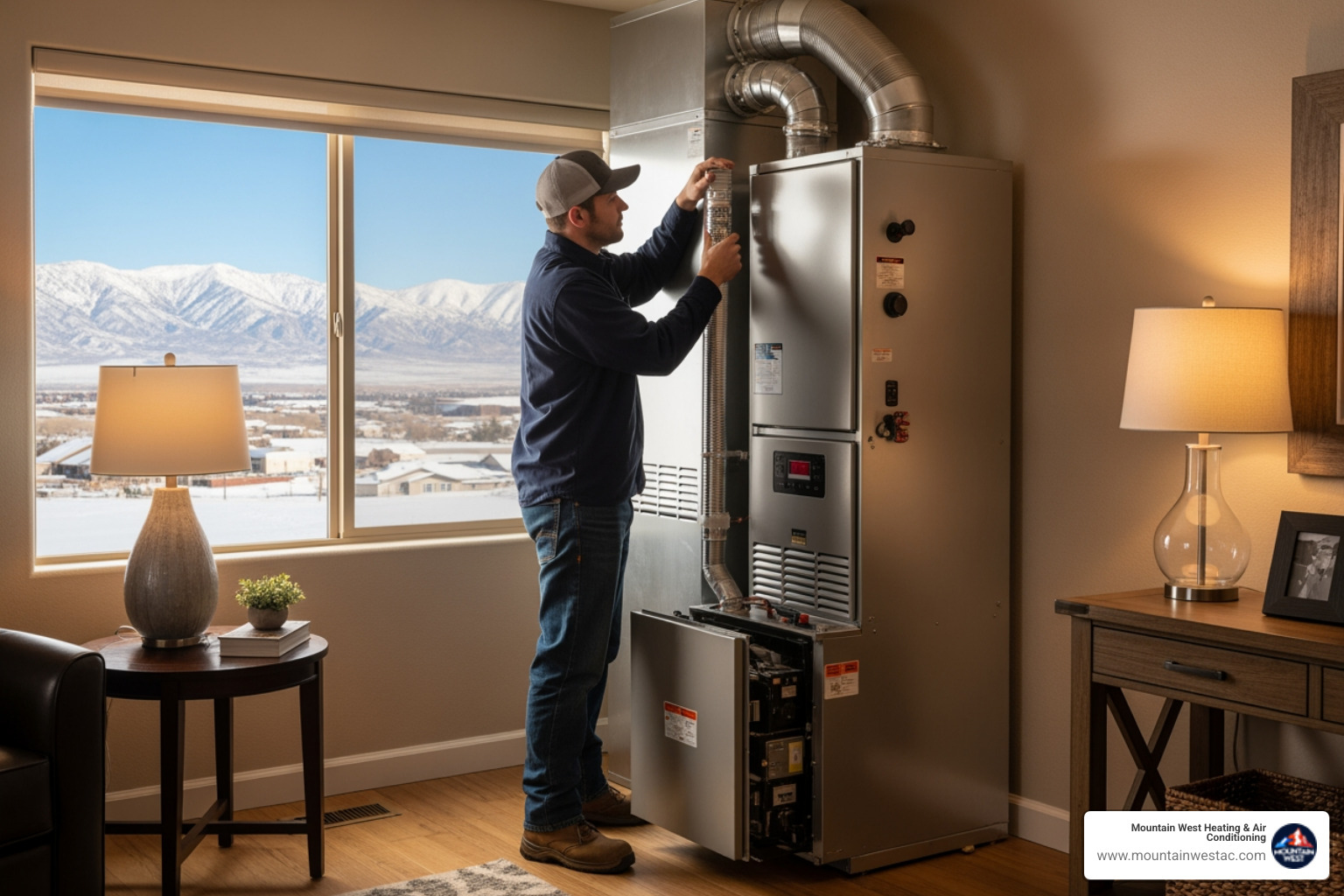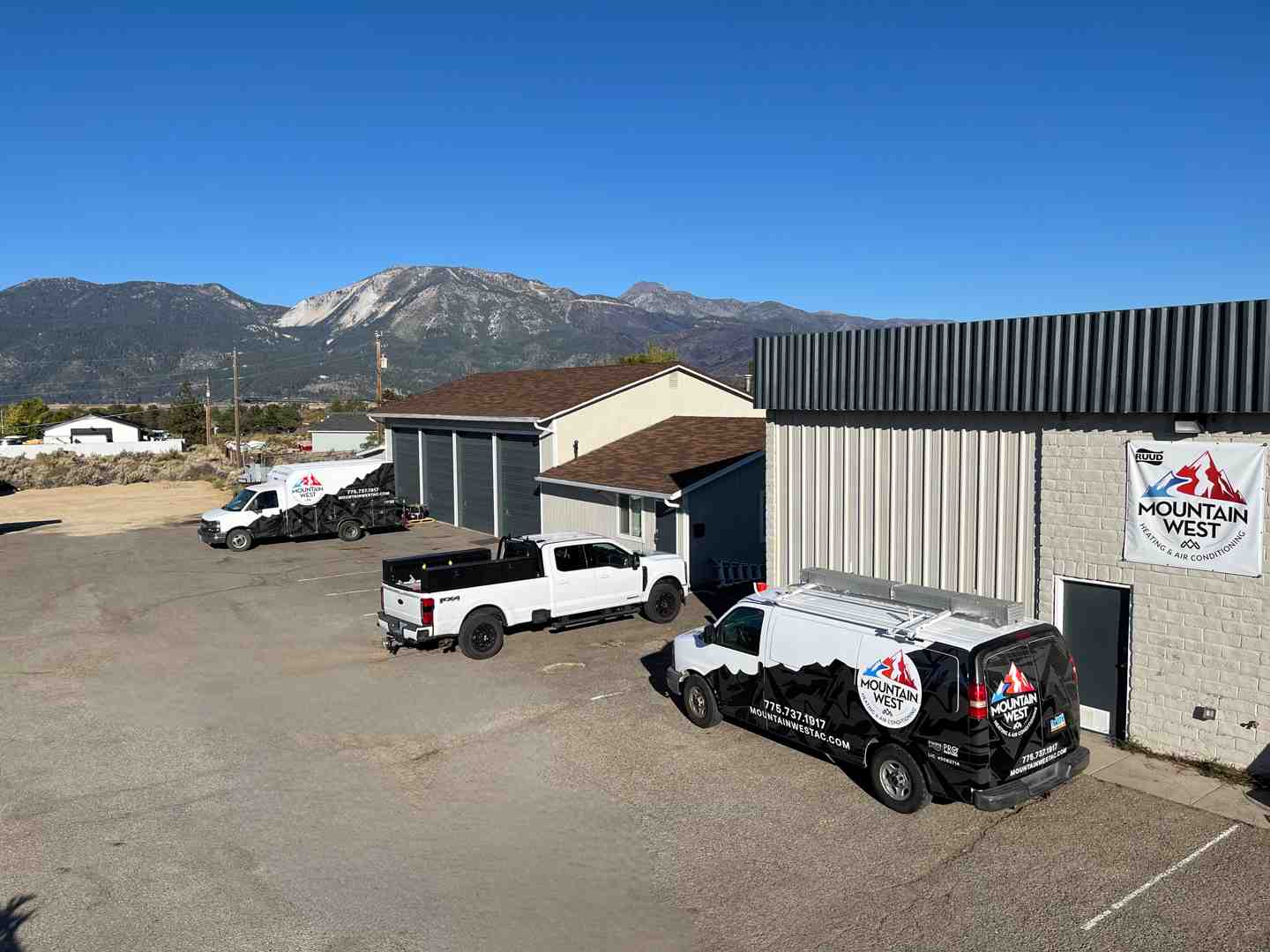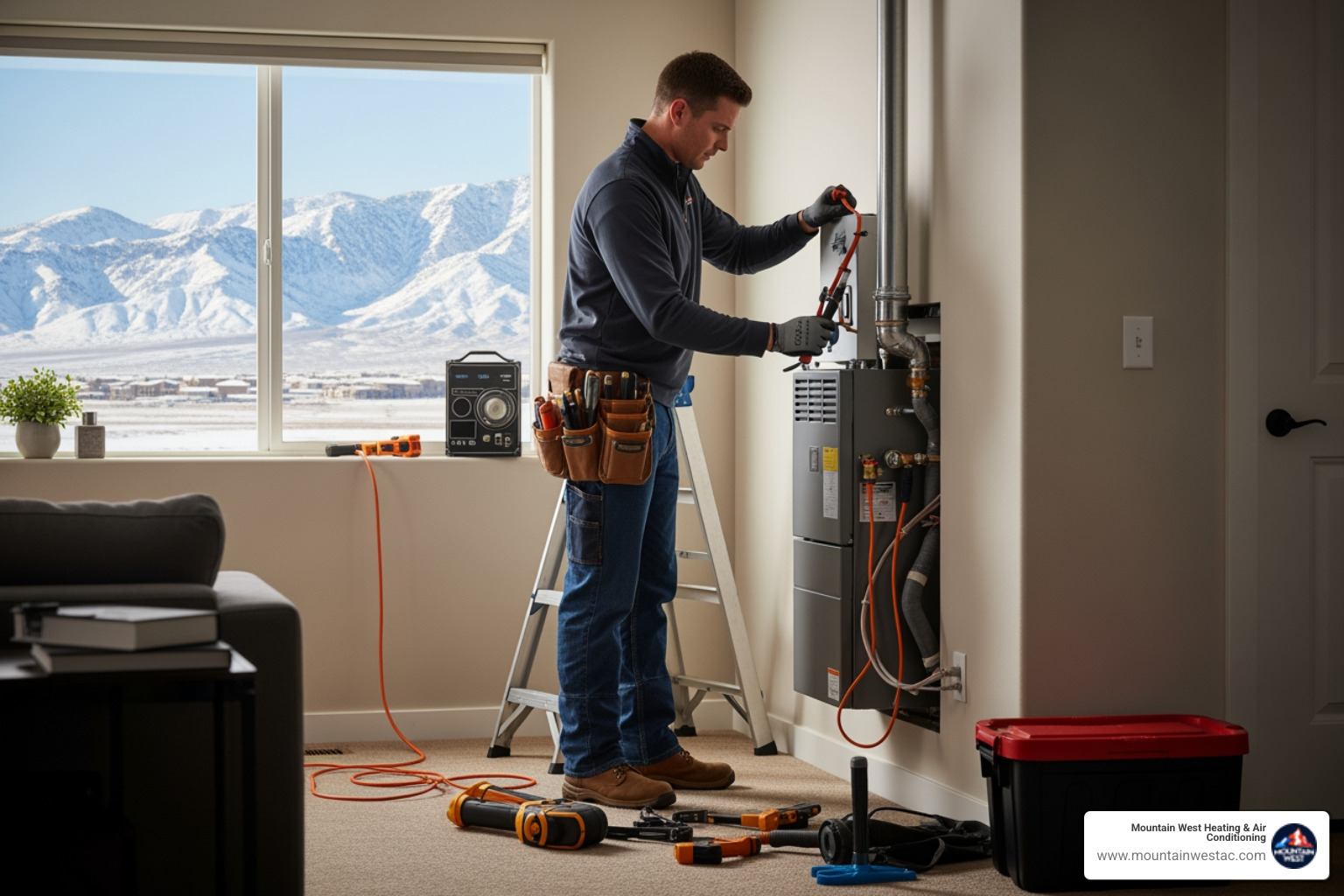AC units freeze up for a few key reasons, and understanding why can help you solve the issue quickly. The most common causes of a frozen AC unit are inadequate airflow, dirty air filters, low refrigerant levels, or faulty components. When your air conditioner doesn't get enough airflow across its evaporator coil, the temperature drops too low, and moisture freezes. This creates a cycle where ice builds up, blocking even more airflow.
Turn off your system immediately if you notice ice formation, and allow everything to thaw completely before running diagnostics. Many freezing issues can be prevented with regular AC maintenance, like changing filters monthly and scheduling professional inspections before cooling season begins.
Understanding the Basics of AC Freezing
When your air conditioner freezes up, it signals an underlying issue disrupting the normal cooling process. Ice formation typically starts at the evaporator coil and can spread to other components if not addressed quickly.
The Role of Refrigerant in Cooling
Refrigerant is the lifeblood of your AC system, circulating through the system, absorbing heat from your home, and releasing it outside. When refrigerant levels drop too low (often due to leaks), the pressure in the system changes dramatically. This pressure change causes the remaining refrigerant to get too cold, falling below freezing temperatures. The evaporator coil then becomes extremely cold - cold enough to freeze moisture from the air passing over it.
Low refrigerant doesn't just cause freezing; it forces your system to work harder for less cooling. This increases energy bills and can damage vital components like the compressor. If you notice ice forming along with reduced cooling performance, a refrigerant issue is likely the culprit.
Airflow and Temperature Regulation
Proper airflow is critical to prevent freezing in your AC system. When air can't flow freely across the evaporator coil, the coil temperature drops too low, and ice forms.
Several factors can restrict airflow:
- Clogged air filters: The most common and easiest to fix
- Dirty evaporator coils: Dust and debris create an insulating layer
- Damaged or defective blower fans: Prevents adequate air movement
- Collapsed air ducts: Restrict air from reaching the system
- Closed or blocked supply registers: Reduce return airflow
When the warm air from your home can't reach the evaporator coil, the coil stays too cold, and you might notice weak airflow from vents when freezing occurs.
Common Causes of AC Freeze-ups
Air conditioners freeze up for a few key reasons that homeowners should understand. These problems prevent your system from working properly, leading to bigger issues if not addressed quickly.
Low Refrigerant Levels and Leaks
When your AC system doesn't have enough refrigerant, the pressure inside the system drops. This lower pressure causes the temperature to fall below freezing around the evaporator coil, creating ice buildup. Refrigerant doesn't get "used up" during normal operation. If levels are low, it typically means there's a leak somewhere in your system. These leaks not only cause freezing but can damage your compressor over time.
Signs of low refrigerant include:
- Warm air is blowing from vents
- Hissing sounds from the unit
- Higher electricity bills
- Longer cooling cycles
Refrigerant leaks require professional attention, as a certified HVAC technician can locate the leak, repair it, and safely recharge your system to the correct levels.
Obstructed Air Flow and Dirty Filters
Poor airflow is one of the most common reasons ACs freeze up, and the main culprits behind restricted airflow include:
- Dirty air filters are blocking the air intake
- Closed or blocked vents and registers
- Clogged return air ducts
- Undersized ductwork for your system
Check your air filter monthly during heavy use seasons, and replace it when it appears dirty or according to the manufacturer's timeline. Also, ensure all vents remain open, even in unused rooms. Closing too many vents creates pressure imbalances that can lead to freezing.
Mechanical Failures Impacting Evaporator Coils
Sometimes mechanical issues cause your AC to freeze up, and problems with fan motors, blower wheels, or the evaporator coil itself can all contribute to ice formation. A failing blower motor won't move enough air across the evaporator coil, creating the same conditions as a dirty filter, resulting in reduced airflow and leading to freezing temperatures.
Dirty evaporator or condenser coils also cause problems. When coils get covered in dirt and debris, they can't transfer heat effectively. The system must work harder, often leading to freezing. Professional cleaning of the coils and an inspection of mechanical components can identify problems before ice starts forming.
Preventative Maintenance and Troubleshooting
Keeping your AC unit running smoothly requires regular care and knowing how to spot problems early. Proper maintenance can prevent freezing issues and save you from costly repairs.
DIY Troubleshooting and When to Seek Help
When you notice your AC beginning to freeze, take these immediate steps:
- Turn off the AC system completely (not just adjusting the thermostat)
- Check and replace air filters if they’re dirty
- Ensure all vents are open and unobstructed
- Allow the unit to thaw completely (may take 24 hours)
Inspect visible components for ice buildup once thawed. If you see dirt on coils that you can access safely, gently clean them with a soft brush. For persistent freezing issues, call professionals.
Signs you need expert help include:
- Ice returning after DIY fixes
- Unusual noises from the unit
- Weak airflow despite clean filters
- Water is leaking around the indoor unit
Regular Inspections and Professional Servicing
Scheduling professional HVAC inspections twice yearly is crucial for preventing AC freeze-ups. We recommend booking a service call in spring before heavy use begins and again in fall. During these visits, technicians check refrigerant pressure, clean coils, and inspect expansion valves—all potential causes of freezing.
Professional maintenance checklist:
- Refrigerant level verification
- Coil cleaning (both evaporator and condenser)
- Electrical connection tightening
- Moving parts lubrication
- Condensate drain inspection
The cost of preventative maintenance is always less than emergency repairs, and most HVAC companies offer maintenance plans that include priority scheduling and discounts on repairs.
Get in touch to arrange an annual inspection and tune-up of your AC.









